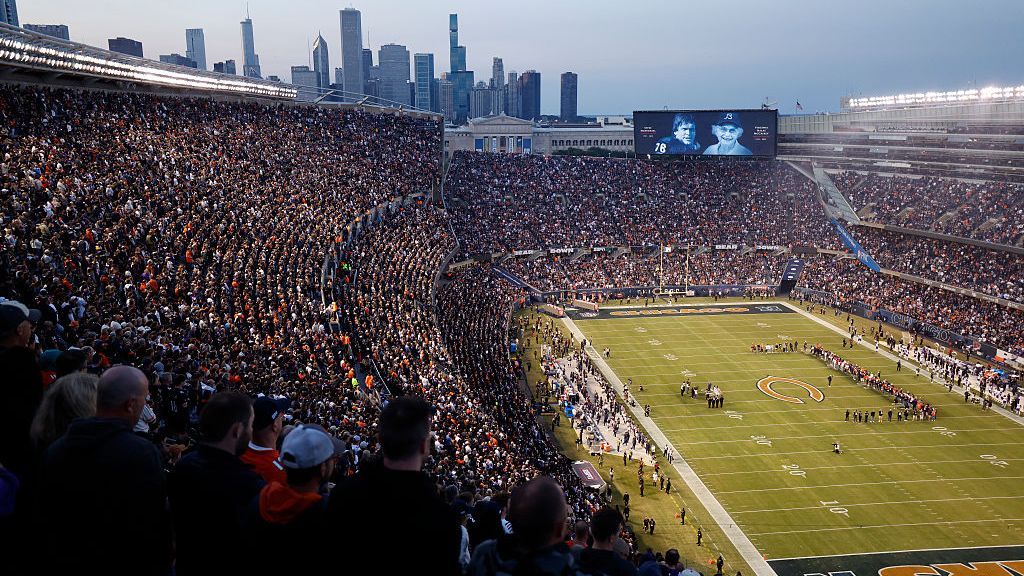Bears' Kevin Warren on stadium move: "This project does not represent us leaving, it represents us expanding."
The Chicago Bears are set to relocate to Arlington Heights, marking a historic shift in the franchise's long-standing relationship with the city of Chicago.
Why it matters: This move signifies a pivotal change for one of the NFL's oldest franchises and reflects broader trends in professional sports regarding stadium ownership and venue modernization.
- After over a century of playing in the Windy City, the Bears aim to create a state-of-the-art facility that not only hosts games but also serves as a community hub.
- The decision has been met with mixed reactions from fans, many of whom cherish the team's historical ties to Chicago.
What’s new: The Bears have confirmed their plans to construct a new stadium in Arlington Heights, which will feature a nearly $5 billion development plan including restaurants and retail spaces.
- Team president Kevin Warren emphasized the significance of finalizing these plans this year to position the team for a potential Super Bowl bid by 2031.
- Over half of the Bears' season-ticket holders reside within 25 miles of the proposed site, indicating strong local support for the project.
Yes, but: While the Bears assert that the new stadium will require no state funding, there are legislative hurdles to navigate before construction can begin.
- A bill must be passed to freeze property taxes on large-scale developments, a crucial step to ensure financial viability for the project.
- Despite concerns about economic implications for the city of Chicago, Warren stated that the move should be viewed as an expansion rather than a departure.
What to watch: As negotiations progress, keep an eye on how local government responds to the Bears' proposals and whether community sentiment shifts.
- The proposed development could generate approximately 56,000 jobs during construction and 9,000 permanent positions, a potential boon for the local economy.
Our thought bubble: This relocation is part of a growing trend among NFL teams seeking modern facilities that enhance revenue streams through multipurpose use.
- Historically, the Bears have not owned their home stadium, having shared Wrigley Field with the Chicago Cubs until 1970 and then utilizing Soldier Field since then.
The bottom line: The Bears are poised for a transformative chapter as they embark on this ambitious project, aiming to redefine their identity while contributing to the Arlington Heights community.
- As Warren put it, “Moving outside of the city of Chicago is not a decision we reached easily,” highlighting the thoughtful planning behind this significant transition.
